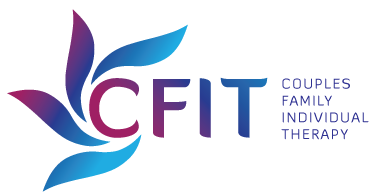Harvard Study about Raising Healthy Children. LGBTQ Impact Commentary
/Psychologists at Harvard University published an article in early 2017 recommending five critical elements for raising healthy children. This article will highlight those recommendations and then focus on how “long-standing members” of the LGBTQ community can serve as role models and allies to the teenagers and young adults who begin their journey as out LGBTQ persons.
1. Spend Quality Time with Your Children. This parenting recommendation is not limited to spending time with your children, but how to spend that time including open communication, listening carefully to their concerns and questions, as well as doing things that they are interested in. Think about the recent TV commercial in which a dad has dressed up for his daughter’s tea party to the delight and beaming smile of this young child.
Now the challenge for the “elders” (persons out for more than ten years as young as age 30 are included in this group!) in the LGBTQ community is to engage those newly out in activities that they enjoy, rather than just going out for drinks. Determine if the LGBTQ young adult would like to try out a social event, team, or organization along with you. Be open to listening to her/his struggles with new relationships, and encourage them with insights about success stories of long-term LGBTQ couples you know of (or have been a part of). Introduce them to other close friends who share their interests.
2. Let Your Kids See a Strong Moral Role Model and Mentor in You. In other words, do as I do and not as I say. Actions speak volumes, so demonstrating good manners, humility and honesty are incredibly valuable to our children. Furthermore, admit mistakes and be genuine with any applicable apologies. Parents earn trust and respect from their children when sharing our human faults and acknowledging those mistakes.
Mentoring a younger LGBTQ person in your career field is a great option. Consider ways to spend time with newly out LGBTQ persons that do not involve sexual activity; introduce them to other friends and allies over meals, relaxed conversation, or social activities like bowling, going to the beach, visiting the Stonewall Museum, or volunteering together at an LGBTQ friendly non-profit organization. Engage them in fundraising efforts for local non-profits like the Smart Ride or Sun Serve.
3. Teach Your Children to Care for Others and Set High Ethical Expectations. Consider reframing the message, “The most important thing is that you are happy,” to “The most important thing is that you are kind and that you are happy.” Children are encouraged to share in household responsibilities, negotiate with siblings and close friends, play fairly when engaging in cards or a board game, and to think about other peers who may be viewed as outsiders or unpopular.
Within the “alphabet soup” of LGBTQ, most of us represent one letter, but we serve as allies for the other letters in the LGBTQ community. Cisgender persons advocating for transgender rights and understanding continues to grow the trust and acceptance of our full community. Encourage newly out persons to follow safer sex guidelines and to be wary of drug abuse. Build close friendships with persons across the full LGBT spectrum as well as those LGBTQ persons from various race, faith, and national backgrounds. Befriending all colors of the rainbow sets lofty expectations for the young adults we mentor.
4. Encourage Children to Practice Appreciation and Gratitude. Practicing thankfulness on a regular basis will often result in developing helpful, generous, compassionate and forgiving young adults. Demonstrating random acts of kindness will build responsibility in the classroom, after school activities, community teams and events, as well as at home. Role model thanking restaurant workers and collaborating with store clerks politely to teach children responsible behavior in public settings.
In our LGBTQ community, consider volunteering for a LGBTQ focused non-profit organization; taking the time to give directions to a visitor seeking a store or restaurant on Wilton Drive; taking trash or recyclables to the proper disposal units in public places; and for those of us who work out in an LGBTQ friendly gym, put the weights back in the proper location when you finish working out with them. Take a newly out LGBTQ person to volunteer at The Poverello Center or to another entity that provides meals to financially challenged persons, persons homebound with severe illnesses, and/or persons living on the streets.
5. Teach Children to See the Big Picture. Teach children to care not only about their close friends but about a larger circle that includes a new classmate, a rival, people who speak another language, or someone who has a disability. Encourage children to consider the perspectives and feelings of other persons, especially those who are vulnerable. Discuss how to act, such as comforting a peer who has been teased or bullied, as well as considering children whose financial circumstances may be challenging.
Our challenge as LGBTQ persons is to extend ourselves to advocate for other rights of all minorities, to welcome someone different into my circle of friends, and again, to encourage LGBTQ young adults to understand not only our community history, but to advocate for other minority groups seeking equality. Much like our lesbian allies provided care, meals, and quality time with gay and bisexual HIV+ men suffering with AIDS related complications, men can step up to provide care, meals, and quality time with women during chemotherapy treatments for breast cancer. Take young adults on your fundraising journeys for the Smart Ride, Breast Cancer, AIDS and walks for other medical conditions.
While these suggestions are not a fully comprehensive list, my hope is that the elements presented by the Harvard psychologists and the commentary about the applications to the LGBTQ community challenges you as a parent, mentor, citizen, and human being to be your best self and to extend that best self to the younger members of our community.


